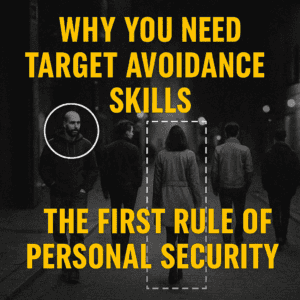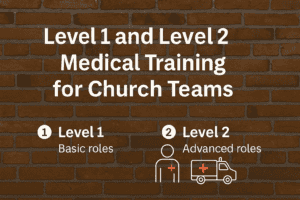When considering safety and security, a lot of churches depend on volunteer church security teams. These teams are often comprised of individuals devoted to keeping their church family safe and prepared for emergencies.
One question that frequently surfaces among these teams is whether they can use handcuffs or other restraining methods during an incident.
Understandably, the rules governing the use of handcuffs or other restraints can vary by state and jurisdiction. While some states may allow citizens to act in defense of themselves or others, these laws might not extend to the use of restraints.
To ensure the safety of the church community and the security team, it is important to determine the regulations in place for volunteer church security team members concerning handcuffs and similar methods.
As a part of comprehensive church security practices, volunteer teams must receive appropriate training on potential legal implications and the proper use of different tools, including handcuffs.
At the same time, church leadership should work to establish clear protocols for handling safety issues that consider everyone involved.
Legal Considerations for Volunteer Church Security Teams
Understanding State Laws and Church Policies
When forming a volunteer security team for a church, it’s essential to be aware of the local and state laws that may apply.
For example, Texas law allows churches to establish security teams without obtaining a license if the individuals are unpaid volunteers and provide the services on the premises of the church. On the other hand, California has specific legislation that might vary.
Church administrations must be familiar with the laws in their state and establish policies that adhere to both the legal requirements and the overall goals of the church.
Liability and Insurance Implications
Insurance considerations are another vital aspect for churches employing volunteer security teams. Liability and insurance requirements differ between states and insurance providers.
Churches need to understand the legal and insurance considerations for their security team.
Among the critical factors to consider are:
- Volunteer training: Ensuring the security team members receive appropriate training to handle different situations.
- Incident reporting: Establishing a system that clearly outlines the protocol for reporting incidents.
- Risk assessment: Identifying potential risks and implementing measures to mitigate them.
Use of Force: Legal Frameworks and Boundaries
When it comes to the use of force, volunteer security teams in churches face a balance between protecting the church and adhering to legal requirements.
The legal frameworks that guide the use of force can vary from state to state. For example, some states have “Castle Doctrine” or “Stand Your Ground” laws which allow individuals to use force to defend themselves or others, but those laws may not extend to the use of restraints.
However, it is essential to remember that volunteer security teams are not law enforcement officers, and their actions might have legal implications if they overstep boundaries.
The use of handcuffs, for instance, “might” be acceptable in specific circumstances, but there needs to be a clear understanding of their proper use and possible legal repercussions.
Again, churches must establish guidelines for the security team related to the use of force and ensure they align with both state laws and the values of the church.
Operational Best Practices for Church Security Teams
Developing Effective Training Programs
When establishing a volunteer church security team, it’s crucial to develop an effective training program for all members. This ensures everyone is prepared to handle any potential threat or emergency.
Training should include background checks to verify trustworthy individuals, as well as proper license and permits for those who will carry firearms, where required.
To create a successful training program, first, perform a thorough risk assessment of the church premises. This can help identify weak spots and create a tailored training approach.
A comprehensive checklist can help cover all aspects of security: from proper communication skills to security techniques and emergency response tactics.
It’s important to have ongoing training for team members to maintain cohesion and morale. This can include regular meetings, drills, and workshops.
Training should also encompass firearms training (if applicable) and partnerships with local law first responders.
Emergency Response and Conflict De-escalation
Effective emergency response is a necessary aspect of a church security team’s role. The ability to quickly assess and react to a potential threat is crucial.
Team members should be well-versed in dealing with a variety of situations, from determining a suspicious person’s intent to defusing a tense situation.
Developing strong communication skills is important for every member. In times of crisis, clear communication can help facilitate a quick resolution.
De-escalation techniques should also be a focal point, teaching members to calm a situation before it escalates, consequently prioritizing the safety of the church.
Legal Disclaimer
The information contained in this document is intended for general informational purposes only and is not legal advice. Laws and regulations vary by location and may change over time. Always consult with a qualified legal professional to understand how applicable laws apply to your specific situation. This document does not constitute an attorney-client relationship.









